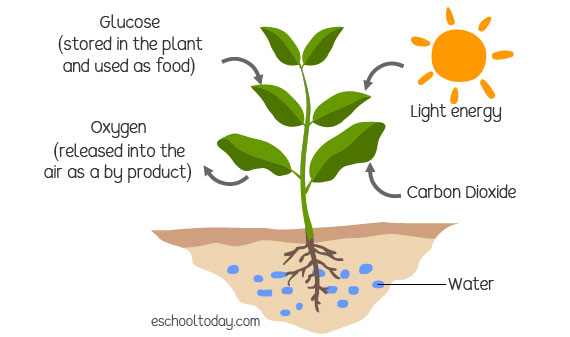- Photosynthesis
What is photosynthesis?
Photosynthesis is a chemical process through which plants, some bacteria, and algae, produce glucose and oxygen from carbon dioxide and water, using only light as a source of energy.

This process is vital for life on earth as it provides the oxygen on which all other life depends.
What does the plant need glucose (food) for?
Plants, just like humans and other living things, require glucose (food) for various purposes. Let’s see a few:
1. Glucose, obtained through photosynthesis, is used by the plant during respiration to release energy that is necessary for other life processes.
2. Plant cells may also convert some glucose into starch for storage. The stored food acts as chemical energy and is utilized by the plant when required. That is why dead plants are used as biomass, as they have stored chemical energy in them.
3. Additionally, glucose is required to produce other vital chemicals such as proteins, fats, and plant sugars that are necessary for the plant to carry out essential growth and other life processes.
